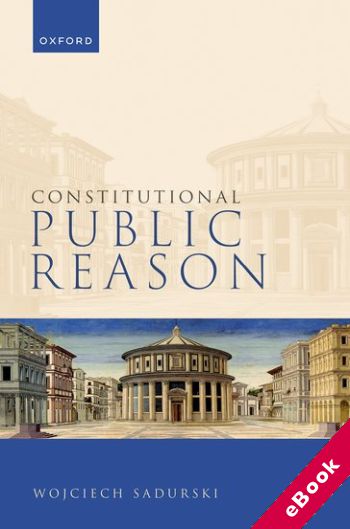
The device(s) you use to access the eBook content must be authorized with an Adobe ID before you download the product otherwise it will fail to register correctly.
For further information see https://www.wildy.com/ebook-formats
Once the order is confirmed an automated e-mail will be sent to you to allow you to download the eBook.
All eBooks are supplied firm sale and cannot be returned. If you believe there is a fault with your eBook then contact us on ebooks@wildy.com and we will help in resolving the issue. This does not affect your statutory rights.
Public reason, which urges that only laws based on principles reasonably agreeable to all those bound by them are legitimate, has rarely been applied to constitutional law, and never in a comparative way. This book aspires to fill that gap, by studying the use of public reason in different constitutional systems. In doing so, it studies public reason both as a normative idea - as a principle postulated for democratic constitutionalism, and as a descriptive account - as helping to understand many important doctrines in constitutional adjudication of some leading constitutional courts around the world, and also in the supranational sphere.
Constitutional Public Reason questions the performance of leading 'exemplars of public reasons', including the top courts of the United States, India, Canada, Australia, Germany, and South Africa, as well as the European Court of Human Rights. It also attempts to show how this performance can be improved in fields such as freedom of expression, non-establishment of religion, and anti-discrimination law. Ultimately, it finds that the best resonance between the ideal of public reason and constitutional interpretation is found in doctrines that locate the illegitimacy of laws in the wrongful motives (or purposes) pursued by legislators. Scrutinising motives is often as important as scrutinising consequences.